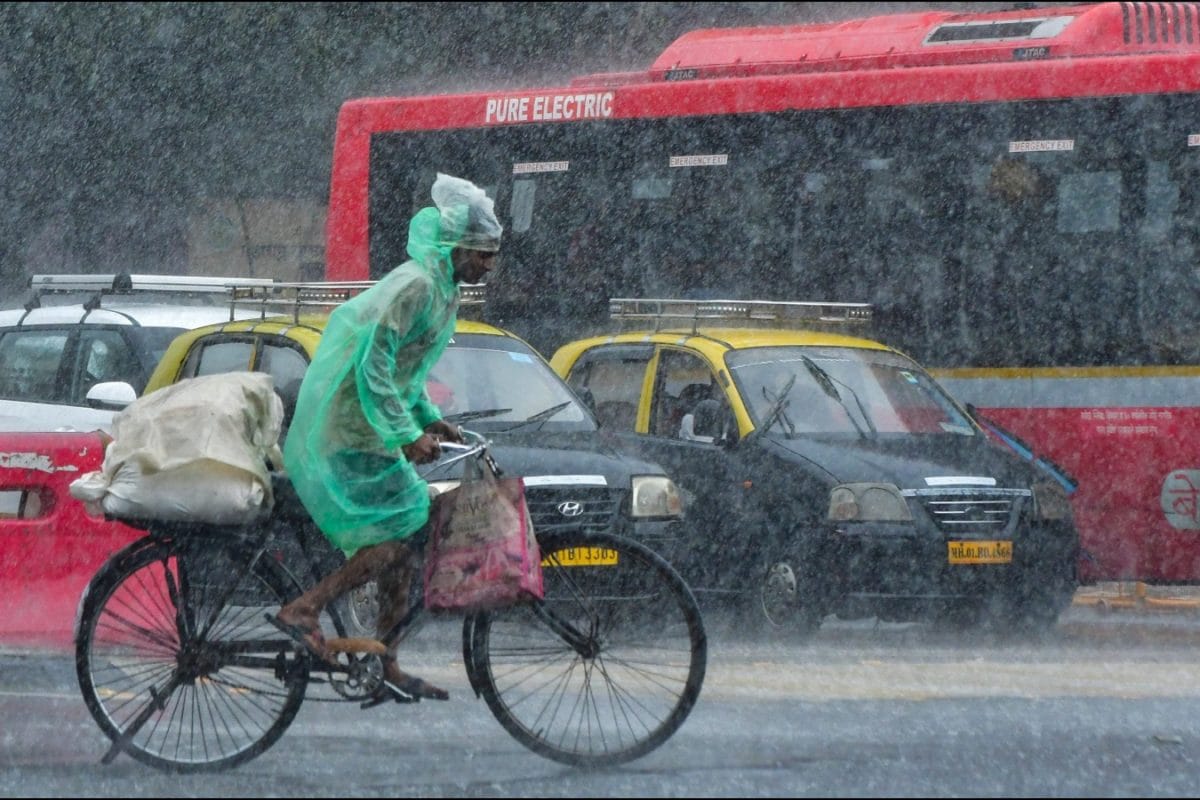

Mumbai experienced heavy rainfall on Tuesday, July 22, 2025, prompting the India Meteorological Department (IMD) to issue a yellow alert for the city. The weather forecast predicts that Mumbai and its neighboring districts will likely continue to receive heavy rainfall until July 25. A yellow alert is in place for Thane until July 25, except for July 24, when the weather warning is upgraded to an orange alert, indicating expectations for heavier rainfall.
The IMD forecasts heavy to very heavy rainfall over Kerala, Karnataka, Coastal Andhra Pradesh, Telangana, Konkan & Goa, Madhya Maharashtra, Madhya Pradesh, Vidarbha & Chhattisgarh during the next 6-7 days.
In the 2 days preceding July 22, Mumbai has already recorded over 200 mm of rainfall. The heavy downpour caused waterlogging in several areas and disrupted traffic in parts of the city. The overnight rains led to waterlogging and inundation at the underground Acharya Atre Chowk station, causing traffic to crawl on the Eastern and Western Express Highways.
Areas in South Mumbai, such as Nariman Point, recorded 252 mm of rainfall in 12 hours, while the BMC headquarters received 216 mm, and the Colaba pumping station recorded 207 mm. The Brihanmumbai Municipal Corporation (BMC) is taking measures to mitigate the situation and minimize the impact of the rains on people. Chief Minister Devendra Fadnavis chaired a pre-monsoon disaster management meeting with various stakeholders, including the PWD, BMC, MMRDA, Railway, Army, Navy, Coast Guard, and NDRF.
On Monday, July 21, heavy rainfall triggered waterlogging in areas including Andheri, Marine Drive, Vile Parle, and Chhatrapati Shivaji Maharaj Terminus, affecting vehicular movement and pedestrian access. The Andheri subway was closed due to water accumulation.
The IMD has predicted partly cloudy skies and moderate rainfall throughout the day. An IMD official noted that conditions may feel slightly cooler, but humidity will persist.
The heavy rains caused significant traffic disruptions, with vehicles stranded for hours on the Western and Eastern Express Highways. Local train services on the Central and Western Railway lines were also disrupted due to waterlogged tracks. In some areas, residents reported power outages and difficulties accessing essential services.
The BMC has mobilized emergency response teams and deployed high-capacity pumps to drain water from flood-prone zones. Civic workers are working to clear stormwater drains clogged with debris. The current state of Mumbai's drainage infrastructure has sparked criticism, with environmentalists and urban planners highlighting the need for improvements to the city's stormwater systems to better cope with heavy rainfall during the monsoon season.
The BMC has advised residents to avoid non-essential travel and stay indoors unless necessary. Disaster management teams are on high alert, and helplines have been activated to assist those stranded or in distress.